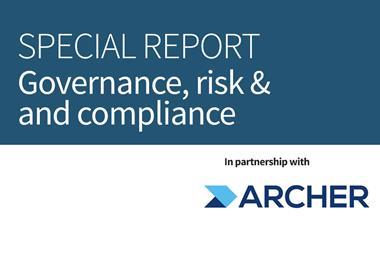75% of board members say climate change is very or entirely important to the strategic success of their companies - report
There is a clear disconnect between what board members say about the importance of climate change to their companies compared to what they are doing about climate change.
However, a report published by Heidrick & Struggles in partnership with INSEAD has found that 75% of board members understand that climate change is very or entirely important to the strategic success of their companies.
The report found nearly half, 46%, of those surveyed felt their board had insufficient or no knowledge of climate change’s implications for financial performance. Climate change is a spoken priority but not yet something that can be measured or something we can hold ourselves accountable for.
The reality is, many boards do not know what they do not know about climate change, which means that they are not always able to take appropriate action.
Louis Besland, partner, London Office and Chemical Sector Lead for Europe, Africa & UK said: “Not all board members have sufficient knowledge and understanding of sustainability, which is why it is imperative that the issue is built into recruitment, education, and reward processes. Knowledge in this area is key in making an actual difference.”
“When a board establishes that it needs a climate expert on the board itself, board chairs, lead directors, and members who embrace innovative methods will build a better company and world around it.”
Sonia Tatar, executive director at the INSEAD Corporate Governance Centre, added: “The corporate governance landscape has been evolving at a fast pace in recent years with rising activism, increasing global pressures and stakeholders’ expectations.”
”Today, climate change is becoming an increasingly urgent dimension for organisations to address as part of their ESG strategy. Investors are prioritising organisations whose actions are combating climate change and stakeholders are urging boards to be climate change stewards.”
The report found 75% of respondents agreed that the issue of climate change was very or entirely important to the strategic success of their companies and 72% of respondents said they are very or entirely confident that their company will reach its climate change goals.
Whilst it was found that board members’ confidence may be misplaced or that their companies’ goals may be insufficiently ambitious, this should not take away from the overall understanding that the climate is changing in the world’s boardrooms.
Alice Breeden, partner in Heidrick & Struggles’ London office, said: “Chairs have a particularly important role to play to ensure the right tone is set in the boardroom. The role of the Chair may need to be challenged and re-thought in some cases.”
”The Chair should ensure climate is treated as a priority, ensuring open and honest discussion about it, and encouraging deep reflection on how quickly the board and company can do even better.”
The report includes the following recommendations for boards moving forward:
-
The inclusion of climate change in the board’s competency matrix and making sure the whole board has sufficient knowledge.
-
To add more relevant voices to your boardroom.
-
To change the board processes and dynamics— a responsibility for the chair.
-
Anchoring the climate change strategy in social and organisational purposes and connecting it to specific operations.
-
Integrating the climate change objectives into executive compensation and search strategies, especially for the CEO.




















No comments yet